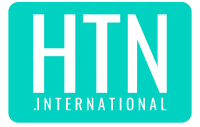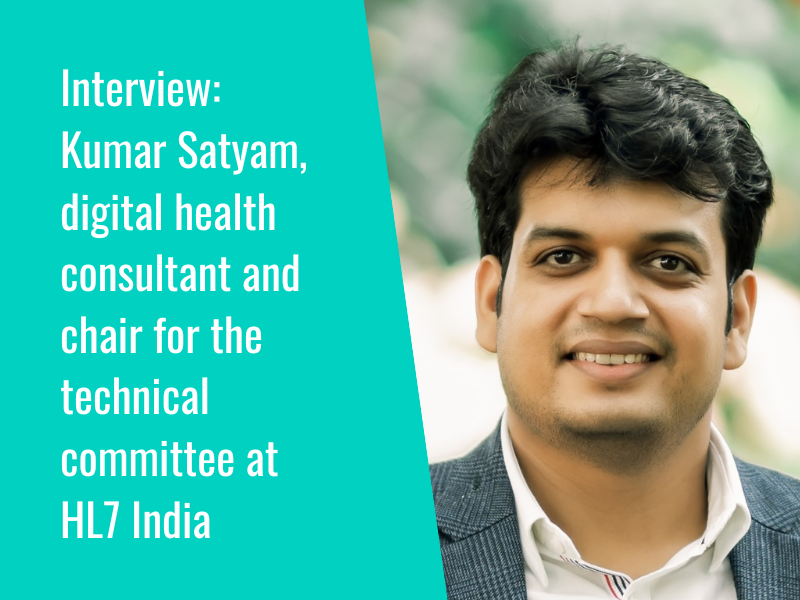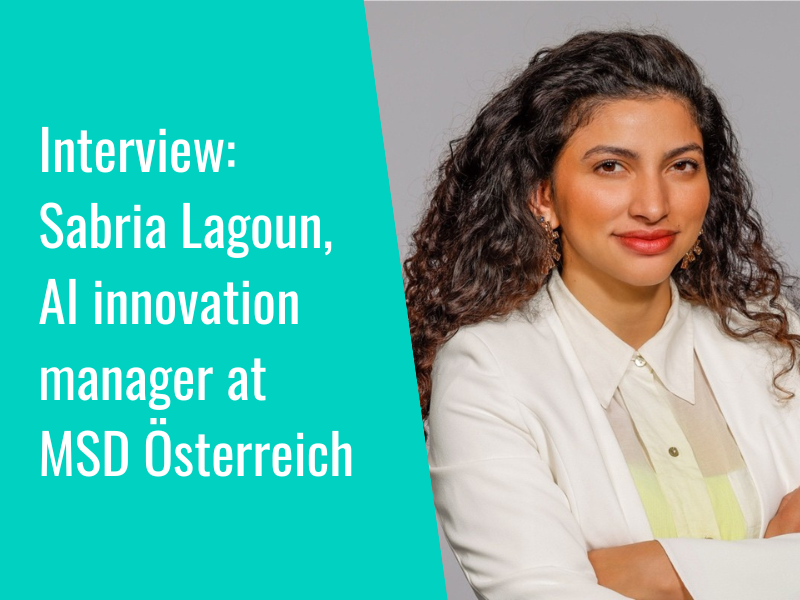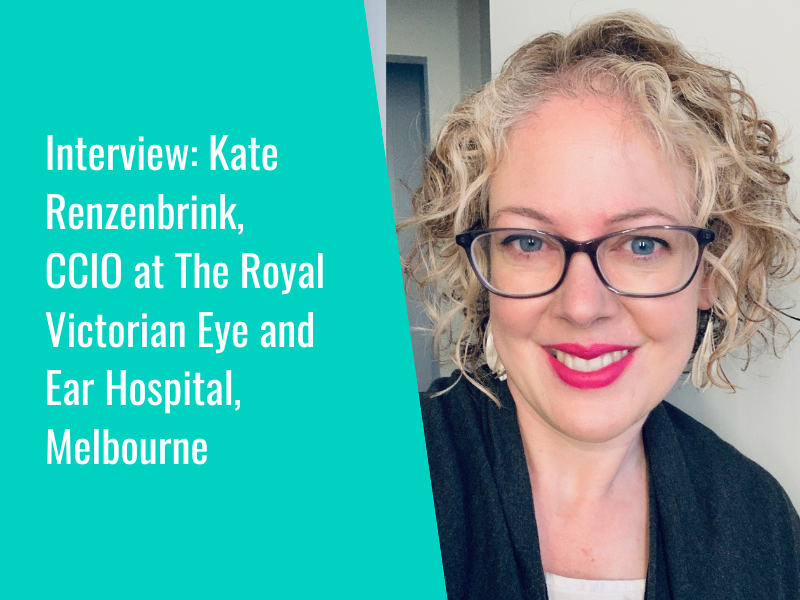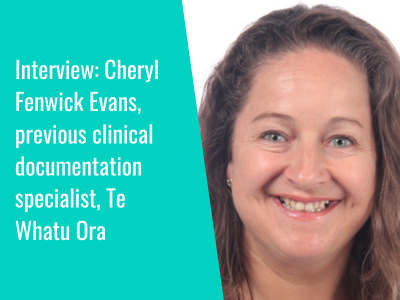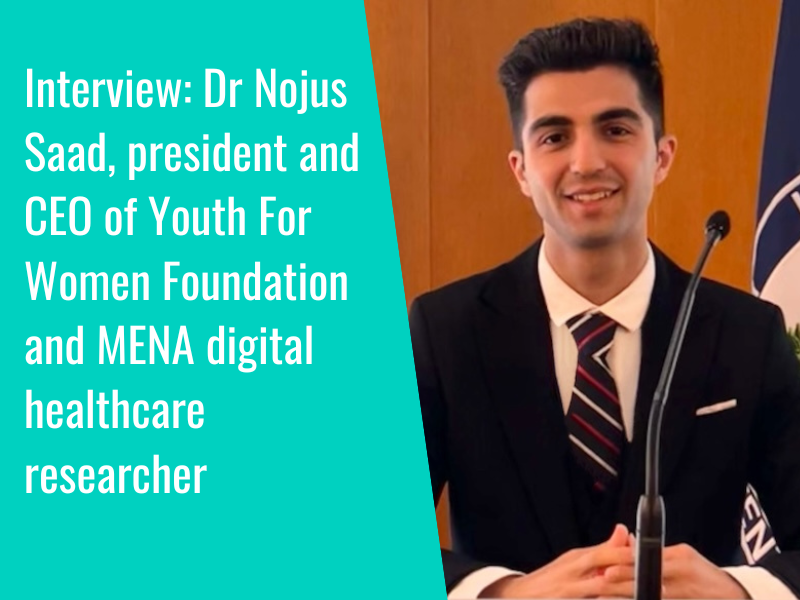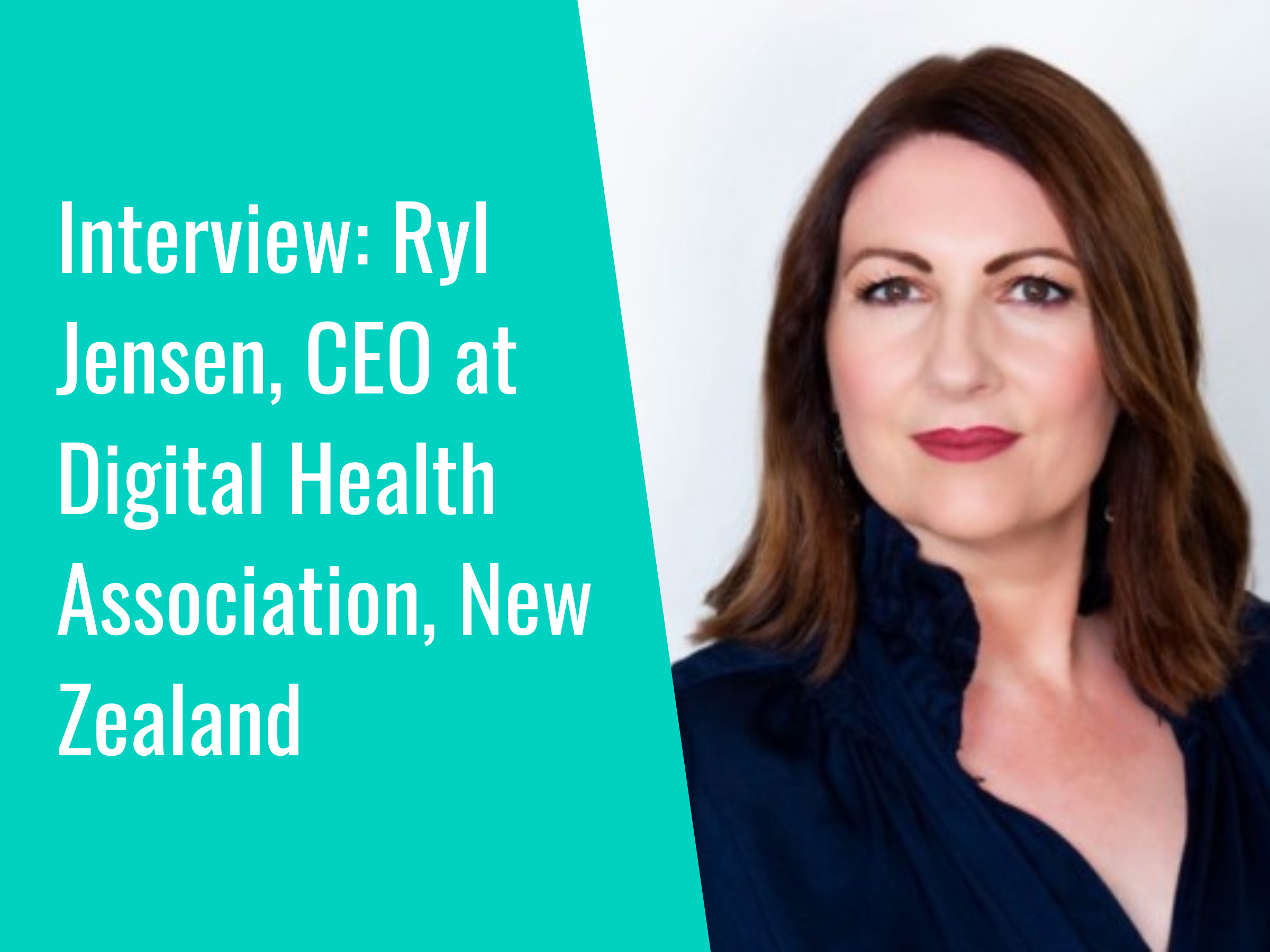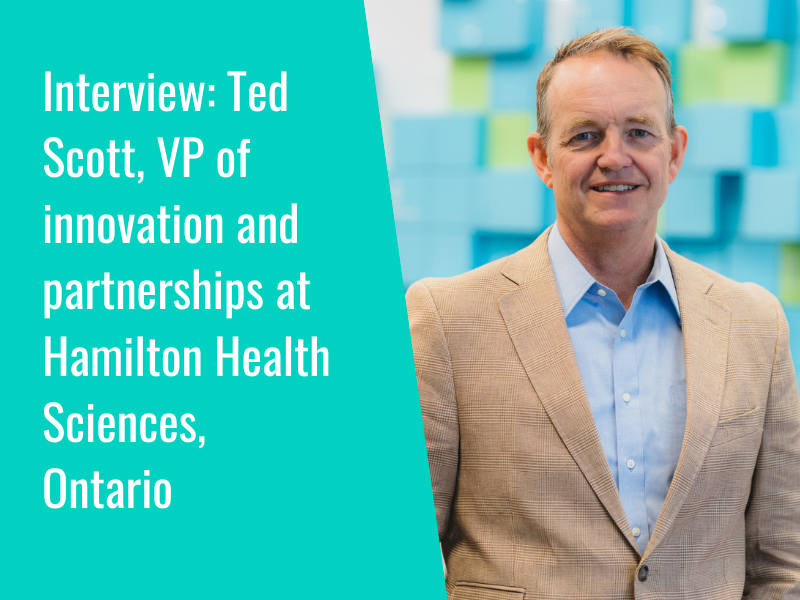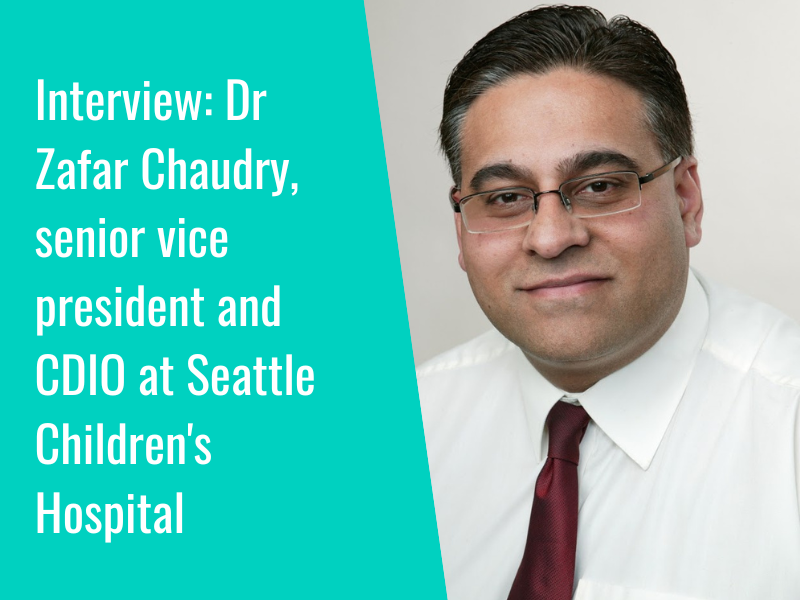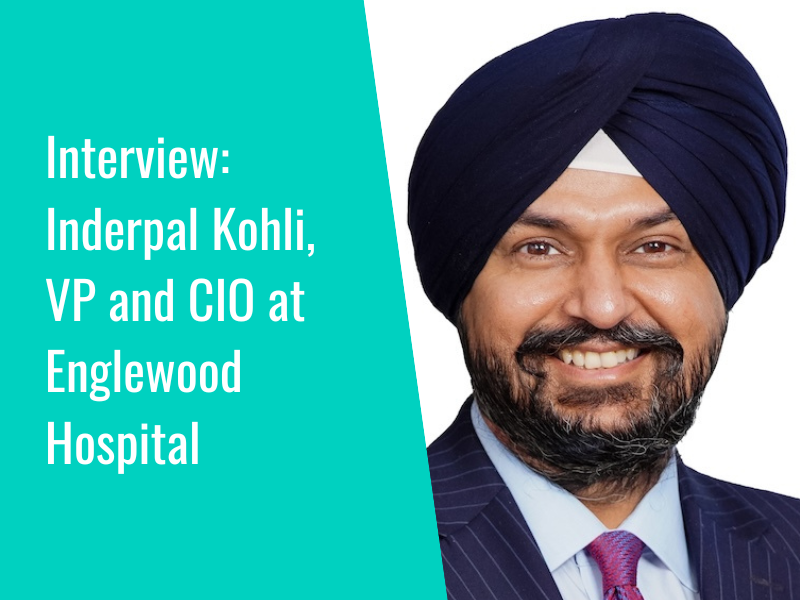For our latest interview, we posed some questions to Dr Nojus Saad, president and CEO of the Youth For Women Foundation, France, and digital healthcare researcher and ambassador across the MENA (Middle East and North Africa) region. Nojus shared his experiences and insights from the field of digital healthcare spanning countries including France, Iraq, and India.
As a medical doctor with an MBChB (Bachelor of Medicine, Bachelor of Surgery) and a multidisciplinary background in digital health, Nojus explained that he has several years’ worth of experience in “multinational research, policy development, and social entrepreneurial expertise around digital healthcare, gender justice, and healthcare innovation; with a particular entrepreneurial and research interest in AI and Machine Learning, mHealth, and the internet of medical things”.
Digital experiences to date
Nojus’s experiences to date are varied and include founding the Youth for Women Foundation in 2018, now headquartered in Gif-sur-Yvette, France. The aim was to “to empower women and young people against the widespread gender-based violence and femicide in the rural and semi-urban communities of Iraq”, with digital access and literacy incorporated into the foundation’s projects “as the primary enablers of health education and empowerment for disadvantaged women and young people”. Numerous projects in this space have positively impacted the lives of “over 6,100 women, adolescents and young adults,” Nojus said, “in over 70 rural, semi-urban, refugee and vulnerable communities of Iraq, India and France”. This has taken the form of health promotion training, community-based research programmes, and national advocacy campaigns for policy reform.
In 2020, Nojus joined the Internet Society as the United Nations Youth Ambassador of the global UN Internet Governance Forum. He served as a Digital Policy Fellow at the Internet Corporation for Assigned Names and Numbers, co-developing and reforming global technical policies of the Internet’s DNS for a healthier, more inclusive and interconnected Internet for all.
Other experiences include working periodically with the International Telecommunications Union as an ambassador of the Generation Connect initiative, advocating for healthcare-inclusive digital solutions in the Western Asia and Northern Africa region; and working with Bond UK as an expert advisor on locally-led development. This role involved consulting with the UK government’s Foreign, Commonwealth and Development Office and the international development sector “on investments around rural research and artificial intelligence opportunities for international non-governmental organisations,” Nojus explained, “particularly focusing on healthcare transformation of rural and vulnerable communities of the Global South.”
Recent digital projects
Moving on to discuss more recent digital projects, Nojus shared how this year he was invited to join an executive programme on politics and diplomacy for health in Sweden, hosted by the Stockholm School of Economics and Karolinska Institutet.
“My research case study analysed the role of diplomatic relations in driving international collaborations on Al research and development for health equity and innovation in the Global South, with a specific focus on promoting knowledge sharing, youth-led social entrepreneurship, and health technology transfer,” he explained.
Nojus also recently helped to judge the 4HERPOWER Global Innovation Challenge at MIT Solve, a scheme supporting and investing in youth-led digital health solutions for advancing the sexual and reproductive health of Global South countries. Winners received a funding prize of $280,000 along with six months of technical support programming from MIT faculty and professionals.
In late 2024 and into 2025, Nojus told us that he and his team are planning to establish a telehealth hub “in one of the largest regional hospitals in Iraq”, to promote access to quality healthcare and consultation services from healthcare providers around the world.
Developing a blueprint for a digital-first health system
Nojus is a regional ambassador and a researcher on the Digital Transformations for Health Lab (DTH-Lab) in Geneva, which he described as a global consortium of partners working to drive implementation of a series of digital transformation recommendations made through ‘The Lancet and Financial Times Commission on Governing Health Futures 2030: growing up in a digital world’. We asked Nojus to share insights into his work in this space, particularly what the blueprint for digital-first health systems might look like.
Nojus described how he has been working on establishing and promoting the adoption of the blueprint, which aims to ensure that systems are co-designed and governed by young people; responsive to health needs; and strengthen digital health citizenship.
“I’ve also been supporting the implementation of a framework for governing health futures that provides governments, technology companies and various stakeholders with guidance on how to build a trusted and inclusive governance architecture,” he added, “based on data solidarity and Health for All values”. The blueprint is due to be launched in late 2025.
“In the first phase, we have recently launched the global interim report, ‘Building a blueprint for digital first health systems: Findings from Global Youth Consultations‘. This was the culmination of six global consultations with young people over a year and a half. In addition to the report, a collection of youth-authored essays was published as a partnering document to showcase key concerns from some of the DTH-Lab Regional Youth Champions.”
What has this research highlighted about the digital determinants of health?
“At the DTH-Lab, I’m helping to establish a sustainable platform for engaging multiple diverse stakeholders in the healthcare space to take coordinated actions to address the digital determinants of health; especially digital health literacy. We’re aiming to better understand the context of the major societal and structural changes that digital transformation embodies.”
At present the Lab is working on bringing together academics and practitioners from different disciplines, with the aim of developing a “conceptual framework for the digital determinants of health to guide policy action and future research priorities in the EU and internationally,” Nojus shared. “We are also generating new knowledge and evidence on how digital determinants intersect with other determinants to impact health and well-being and why they ultimately require new forms of governance.”
To address critical evidence gaps, the DTH-Lab is partnering with organisations in India and Nigeria to study young people’s experiences of digital determinants in different contexts.
Offering an example of a national project that the Youth For Women Foundation has delivered, Nojus shared some insight into the Digital Health Literacy Programme in Iraq, which focuses on building digital skills and literacy across 15 civil society organisations and more than 75 young people. An example of a project here has seen the Lab encourage the programme to organise social media awareness campaigns for combating disinformation around COVID-19, which Nojus said has reached “hundreds of women and young people online, across Iraq.”
Adolescent digital health
In terms of his work on adolescent digital health, Nojus said that as well as contributing to the field of digital inclusion in adolescent healthcare by working with the World Health Organisation, he has also been working with The Lancet as a research peer reviewer in the Second Lancet Commission on Adolescent Health and Wellbeing, “aimed explicitly at contributing to the UN Summit of the Future in 2024″.
During the 2023 Commission Meeting in Cape Town, South Africa, Nojus put forward “significant insights on digital and commercial determinants of adolescent health, emphasising entrepreneurship and digital health innovation.” In this, he sought to foster a strong multi-disciplinary basis for an upcoming research report, scheduled for publication later this year.
At the Partnership for Maternal, Newborn and Child Health’s Global Forum For Adolescents, Nojus co-organised a workshop on embracing sexual and gender diversity in sexual and reproductive health and research. This aimed to explore how social media and digital technologies can positively transform mental healthcare for LGBTQIA+ adolescents and youth, worldwide.
Finally, Nojus shared how he had the opportunity to “champion Australian investments in adolescent mental healthcare, particularly through mobile health services, for young people in the rural and vulnerable communities of the MENA region”, as part of an advocacy fellowship at Orygen Global in Australia.
Experiences in other countries: France, Iraq and India
We asked Nojus what he has learned about the state of digital health internationally through his career so far, as well as his thoughts on how France is performing in comparison to peers.
“The landscape of digital health reveals vast disparities that are shaped by various factors,” Nojus reflected. “First, adoption rates vary significantly, particularly between urban and rural/semi-urban areas. Major digital health technologies are predominantly concentrated in capital cities and large urban centres, significantly limiting access for rural populations.”
Nojus considered that regulatory frameworks play “a crucial role” in national digital health journeys, saying: “France exemplifies stringent data privacy laws (GDPR), and while this ensures security, they are also slowing down innovation. In contrast, Iraq and India are navigating evolving regulations that impact implementation and scaling of digital health solutions.”
Infrastructure is another challenge, Nojus continued, “especially in countries like Iraq, where conflicts have strained healthcare infrastructure. Limited internet connectivity and power shortages further hinder digital health adoption, particularly in remote regions.”
An issue that Nojus’s work has highlighted is that marginalised communities, including refugees, women, LGBTQI+, impoverished, disabled, and elderly populations, “face the greatest challenges in accessing digital health services”. Therefore, he emphasised that “overcoming digital illiteracy, language barriers, lack of awareness, and affordability issues are critical for ensuring inclusivity.”
Looking to recent technological innovations, such as AI-driven diagnostics, wearable health devices, and blockchain-enabled health records, Nojus noted that they have “the potential to transform healthcare delivery”. However, he said, “Trust remains an indispensable factor influenced by cultural norms and socioeconomic conditions. Building trust through community engagement and culturally sensitive approaches is essential for successful adoption.”
Nojus is a “huge advocate for investing in healthcare entrepreneurship, since it plays a significant role in driving innovation and addressing healthcare gaps. There must be substantially more investment opportunities for young entrepreneurs to deliver digital health solutions tailored to local needs, especially in expanding access to marginalised communities.”
Medical education can also play a part in this, Nojus continued, as it “must increasingly integrate digital healthcare to prepare future healthcare professionals for telemedicine, digital diagnostics, and data-driven decision-making, ensuring they are equipped to leverage technology effectively”.
Focusing on France, Nojus said: “The landscape of digital health adoption is rapidly evolving, fuelled by recent advancements that underscore the country’s continued commitment to healthcare innovation. A notable accomplishment is the nationwide rollout of the Dossier Médical Partagé system in 2018, an electronic health record platform which has profoundly impacted patient care by facilitating seamless access to medical records across healthcare providers, greatly enhancing care coordination and patient safety.”
Progress in interoperability and data sharing has been equally impressive, he said, “driven by initiatives spearheaded by the Digital Health Agency, which have not only ensured secure and efficient exchange of health information among healthcare professionals, but also bolstered informed decision-making and improved treatment outcomes.”
Telemedicine has emerged as a “transformative tool”, Nojus added, particularly in response to the COVID-19 pandemic. France “swiftly adapted regulations to enable widespread adoption of remote consultations, extending beyond primary care to encompass specialised services such as mental health and chronic disease management. The integration of telemedicine solutions under the Digital Health Roadmap 2023-2027 has significantly broadened access to healthcare services, particularly benefiting underserved populations and remote areas.”
Nojus also highlighted the Digital Health Strategy for 2023-2027, which outlines “ambitious objectives across four strategic pillars: prevention, patient care, access to healthcare, and fostering a supportive environment for digital innovation”, and “to empower individuals in managing their health, optimise healthcare delivery through digital tools, and cultivate an atmosphere conducive to technological breakthroughs”.
He also noted that tehnologies such as AI-driven diagnostics and mobile health applications “are revolutionising clinical practices and enhancing patient engagement… AI, for example, enhances diagnostic precision and tailors treatment plans to individual needs, while mHealth apps empower patients to monitor their health remotely, promoting proactive healthcare management.”
Nojus stated that he “firmly believes” that France’s holistic approach to digital health “harmonises stringent regulatory standards with pioneering technological advancements” and said that this “synergy fosters a healthcare ecosystem that places paramount importance on patient-centric care, equitable healthcare access, and continuous innovation.” Ultimately, “such steadfast dedication positions France at the forefront of global healthcare transformation, driving tangible enhancements in healthcare delivery and patient outcomes.”
Looking to the future
Finally, we asked Nojus for his thoughts on the biggest challenges for the advancement of digital health in France, and what he would like to see in this space over the next five to 10 years.
“Navigating the regulatory landscape in France’s digital health sector can feel like a complex puzzle,” Nojus acknowledged. “While stringent rules protect patient data and ensure safety, meeting compliance requirements demands considerable time and resources, which can be daunting for both startups and established companies aiming to introduce new technologies swiftly.”
Interoperability presents another major hurdle, according to Nojus, as “each healthcare provider operates with its own IT systems and data formats, complicating the seamless sharing of patient information. This fragmentation slows down care coordination and makes it difficult for healthcare professionals to access comprehensive patient data efficiently.”
Driving digital adoption in hospitals and clinics encounters resistance “due to the old ways of thinking”, and “since many healthcare facilities still rely on traditional pen-and-paper methods, there is reluctance to transition to digital solutions. Convincing skeptics that digital technologies can enhance patient care and streamline workflows requires persistent effort and evidence-based research.”
The digital divide is “evident”, he continued, especially in rural and underserved areas, and addressing these disparities is “essential to ensure equitable healthcare access for all individuals, regardless of their background or location.”
Equipping healthcare professionals with the necessary skills to navigate this digital landscape is also crucial, he said, and “continuous training and education programs are essential to empower them to use digital health tools effectively”.
Overall, he called for a balanced approach that involves fostering collaboration, streamlining regulatory processes where feasible, and incentivising innovation in digital health. “By adopting a more flexible strategy and making strategic investments, France can harness the full potential of technology to transform healthcare delivery and enhance patient care across the country.”
Looking ahead, Nojus shared his excitement for some of the transformations in digital health that he considers “could redefine healthcare globally”, including digital-first health systems in the global health which could potentially overcome longstanding barriers to access; people-centric and youth-centric healthcare, where healthcare “adapts to individual needs and preferences, making it more responsive, engaging, and proactive in promoting lifelong health”; and the integration of AI and machine learning. He also acknowledged the potential around VR and AR technologies for personalised therapies and interactive health interventions; and enhanced interoperability and international healthcare systems featuring the seamless sharing of data across borders.
“In realising these visions, I believe that fostering innovation, ensuring equitable access, and maintaining ethical standards will be essential keys. By embracing these possibilities, we can pave the way for a future where technology enhances human connection and transforms healthcare experiences for the better.”
We’d like to thank Nojus for sharing his insights and experience with us in the international digital health space.
- 1
- 2
